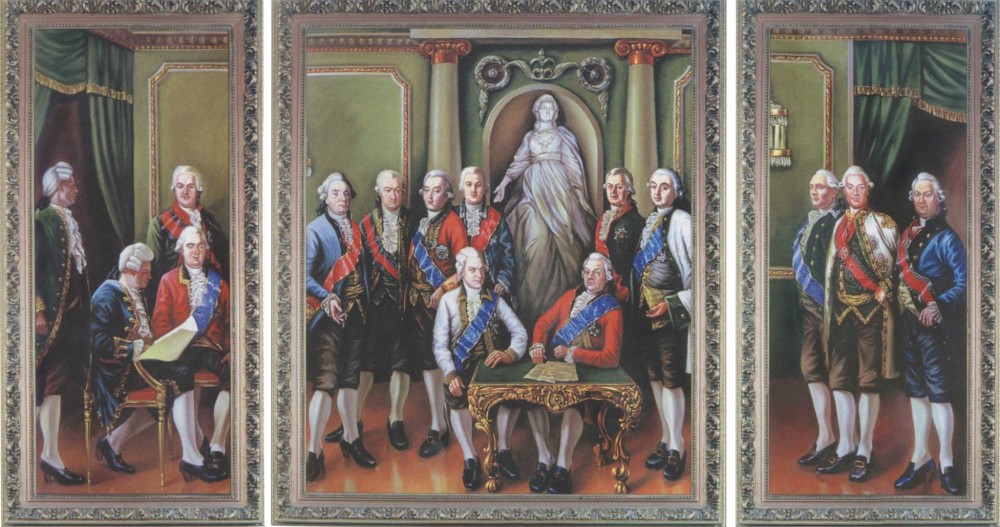
In this article the author considers the interaction between Catherine II and the Free Economic Society (VEO), the first public organization in Russia through the prism of the texts published by various members and authors in its periodical «Trudy». The content of 51 volumes of VEO periodical published from 1765 to 1796 was analyzed. The author expressly stipulates that though the content of «Trudy» articles was largely devoted to practical and economic issues and rhetorical appeal to the Empress was rather sporadic, the unique status of VEO being the only public organization in Russia, should be taken into account. It shared special relationships with the monarch, who for almost 30 years, financially supported VEO publication. Firstly the author examines the attitude of members of VEO to the Empress as the founder and patron of the society. It is noted in the first volume of «Trudy» that 15 founders of the Society asked the Empress to became its patron, to which she responded positively and gave the Society her characters: her personal coat of arms, seal and motto. In their official texts VEO members praised the Empress for her support as a patron. At the turn of the 70s-80s of the XVIII century in the rhetoric of members of the VEO drastically enhanced panegyric rhetoric. Society is often referred to as imperial (alongside with the more common and traditional 'free'). And Catherine herself is now referred to by some authors like A.G. Orlov as the only true founder of the VEO. Secondly the author examines the problems linked with the development of public sphere in Russian Empire, one of the most crucial factors in which were printing and reading books, newspapers and periodicals. The authors of VEO rhetoric appeals meant to spread the idea of the monarch as a guarantor of achieving the common good and simultaneously an example to all of her subjects. It is also noteworthy that in the texts of VEO authors the rhetoric which celebrated the labour as a way to achieve monarchs recognition were applied not only to noblemen, but to the peasants too. In general this rhetoric derives from Catherine's II Instruction (Nakaz). In the texts published in «Trudy» a special emphasis was given to the Empress's intention to enlighten her subjects. In conclusion, the author notes that the VEO has sought to move closer to the Empress, sharing and translating the most important points of her program. VEO has sought to act as a mediator, an intermediary between the Empress and society. These efforts weren't supported by real progress in Empress's point of view, since the sale of works remained low. Eventually Catherine has cooled to the VEO and stop financing its publishing activity.
Source: Petrikov Konstantin A. (2017). «Imperial Society»: relationship between Catherine II and the Free Economic Society in the «Trudy». Tomsk State University Journal of History. 2017. № 47: 15-23
Source web-site: http://journals.tsu.ru//history/en/&journal_page=archive&id=1586&article_id=35295
Number of views: 3023